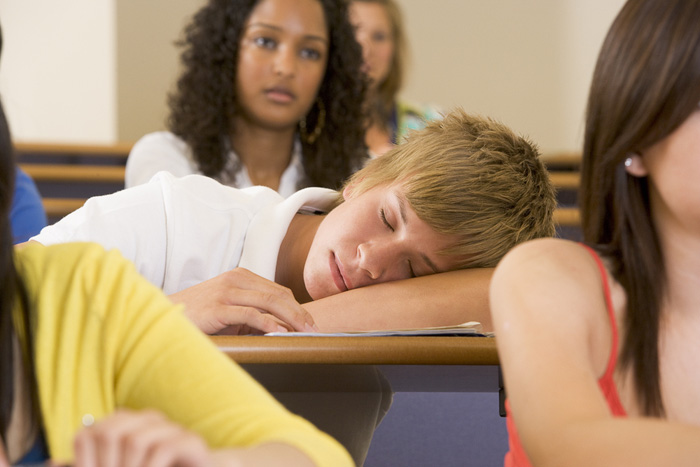
It can be quite an adjustment for children: the transition from the summer schedule to one that requires getting up for school.
And sleep experts at the UConn Health Center say it takes more than moving bedtime up a few hours the night before the first day of school to reset the body clock.
“There’s a tendency, especially in adolescents, to go to bed later and to sleep later, and that’s wired into us because of the biologic clock and the way we respond to light,” says Dr. Daniel McNally, medical director of the UConn Sleep Disorders Center. “Come summer, that tendency has no restraint because they don’t have to get up for school.”
The Top 5 Rules of Sleep for Teens:
- Make time to allow yourself to get a sufficient amount of sleep. You need at least eight and a half hours of efficient, uninterrupted sleep a night to function at your best.
- Have a consistent wake time every day. Be smart about your choices. Understand your body clock makes you feel like you want to go to bed late and sleep late. Resist the urge to sleep in on weekends.
- Your sleep habits affect your school performance, sports performance, your relationships, and even your looks. Poor sleep habits work against the practice of good eating and exercise habits. In the long run they will work against your overall health, leading to problems like obesity and diabetes.
- Understand that recreational use of drugs, including alcohol, will disturb sleep.
- No electronic devices in the bedroom at least 90 minutes before bedtime.
–Dr. Jennifer Kanaan
The key to shifting that body clock to put it more in line with the demands of the school year is not bedtime, but wake time. McNally recommends rolling back wake-up time gradually each day starting a week before the first day of school.
“It’s the light they’re exposed to when they get up that does the job,” McNally says. “The basic idea is to say, ‘Instead of getting up at 9 or 10, we’re going to start getting up at 8 tomorrow, and then 7 the next day, and then 6:30,’ and have them on that schedule. If we can continue the routine—on the weekends too—this will work for almost all kids.”
Dr. Jennifer Kanaan, who specializes in child and adolescent sleep disorders, says most teens need eight and a half to nine hours of sleep. Success in this area is more likely in households that make good sleep habits a priority. (See sidebar, “Top 5 Rules of Sleep for Teens.”)
“The message for sleep-deprived kids is, you’re shortchanging yourself,” Kanaan says. “If you get enough sleep, you’ll do better in school, better in sports, and better in your relationships.”
And the seemingly ubiquitous electronic devices present another obstacle.
“Technology can be an evil medium for sleep,” Kanaan says. “The blue light waves will affect your sleep onset, plus, using your iPad or smartphone at bedtime will activate your mind at a time you need to be shutting it down.”
She recommends unplugging 90 minutes before bedtime.
Follow the UConn Health Center on Facebook, Twitter and YouTube.



